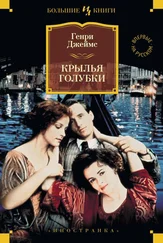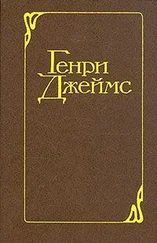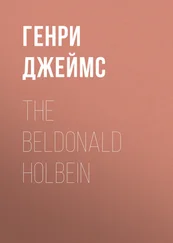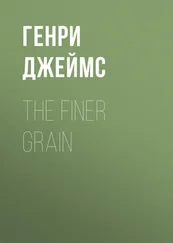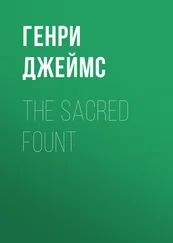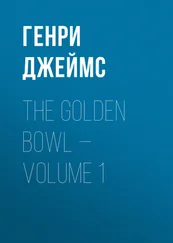Генри Джеймс - Embarrassments
Здесь есть возможность читать онлайн «Генри Джеймс - Embarrassments» — ознакомительный отрывок электронной книги совершенно бесплатно, а после прочтения отрывка купить полную версию. В некоторых случаях можно слушать аудио, скачать через торрент в формате fb2 и присутствует краткое содержание. Жанр: foreign_antique, foreign_prose, foreign_sf, на английском языке. Описание произведения, (предисловие) а так же отзывы посетителей доступны на портале библиотеки ЛибКат.
- Название:Embarrassments
- Автор:
- Жанр:
- Год:неизвестен
- ISBN:нет данных
- Рейтинг книги:4 / 5. Голосов: 1
-
Избранное:Добавить в избранное
- Отзывы:
-
Ваша оценка:
- 80
- 1
- 2
- 3
- 4
- 5
Embarrassments: краткое содержание, описание и аннотация
Предлагаем к чтению аннотацию, описание, краткое содержание или предисловие (зависит от того, что написал сам автор книги «Embarrassments»). Если вы не нашли необходимую информацию о книге — напишите в комментариях, мы постараемся отыскать её.
Embarrassments — читать онлайн ознакомительный отрывок
Ниже представлен текст книги, разбитый по страницам. Система сохранения места последней прочитанной страницы, позволяет с удобством читать онлайн бесплатно книгу «Embarrassments», без необходимости каждый раз заново искать на чём Вы остановились. Поставьте закладку, и сможете в любой момент перейти на страницу, на которой закончили чтение.
Интервал:
Закладка:
The whole business proved the first of a series of phenomena so strangely combined that, taken together (which was how I had to take them) they form as good an illustration as I can recall of the manner in which, for the good of his soul doubtless, fate sometimes deals with a man’s avidity. These incidents certainly had larger bearings than the comparatively meagre consequence we are here concerned with—though I feel that consequence also to be a thing to speak of with some respect. It’s mainly in such a light, I confess, at any rate, that at this hour the ugly fruit of my exile is present to me. Even at first indeed the spirit in which my avidity, as I have called it, made me regard this term owed no element of ease to the fact that before coming back from Rapallo George Corvick addressed me in a way I didn’t like. His letter had none of the sedative action that I must to-day profess myself sure he had wished to give it, and the march of occurrences was not so ordered as to make up for what it lacked. He had begun on the spot, for one of the quarterlies, a great last word on Vereker’s writings, and this exhaustive study, the only one that would have counted, have existed, was to turn on the new light, to utter—oh, so quietly!—the unimagined truth. It was in other words to trace the figure in the carpet through every convolution, to reproduce it in every tint. The result, said Corvick, was to be the greatest literary portrait ever painted, and what he asked of me was just to be so good as not to trouble him with questions till he should hang up his masterpiece before me. He did me the honour to declare that, putting aside the great sitter himself, all aloft in his indifference, I was individually the connoisseur he was most working for. I was therefore to be a good boy and not try to peep under the curtain before the show-was ready: I should enjoy it all the more if I sat very still.
I did my best to sit very still, but I couldn’t help giving a jump on seeing in The Times after I had been a week or two in Munich and before, as I knew, Corvick had reached London, the announcement of the sudden death of poor Mrs. Erme. I instantly wrote to Gwendolen for particulars, and she replied that her mother had succumbed to long-threatened failure of the heart. She didn’t say, but I took the liberty of reading into her words, that from the point of view of her marriage and also of her eagerness, which was quite a match for mine, this was a solution more prompt than could have been expected and more radical than waiting for the old lady to swallow the dose. I candidly admit indeed that at the time—for I heard from her repeatedly—I read some singular things into Gwendolen’s words and some still more extraordinary ones into her silences. Pen in hand, this way, I live the time over, and it brings back the oddest sense of my having been for months and in spite of myself a kind of coerced spectator. All my life had taken refuge in my eyes, which the procession of events appeared to have committed itself to keep astare. There were days when I thought of writing to Hugh Vereker and simply throwing myself on his charity. But I felt more deeply that I hadn’t fallen quite so low, besides which, quite properly, he would send me about my business. Mrs. Erme’s death brought Corvick straight home, and within the month he was united “very quietly”—as quietly I suppose as he meant in his article to bring out his trouvaille —to the young lady he had loved and quitted. I use this last term, I may parenthetically say, because I subsequently grew sure that at the time he went to India, at the time of his great news from Bombay, there was no engagement whatever. There was none at the moment she affirmed the opposite. On the other hand he certainly became engaged the day he returned. The happy pair went down to Torquay for their honeymoon, and there, in a reckless hour, it occurred to poor Corvick to take his young bride a drive. He had no command of that business: this had been brought home to me of old in a little tour we had once made together in a dogcart. In a dogcart he perched his companion for a rattle over Devonshire hills, on one of the likeliest of which he brought his horse, who, it was true, had bolted, down with such violence that the occupants of the cart were hurled forward and that he fell horribly on his head. He was killed on the spot; Gwendolen escaped unhurt.
I pass rapidly over the question of this unmitigated tragedy, of what the loss of my best friend meant for me, and I complete my little history of my patience and my pain by the frank statement of my having, in a postscript to my very first letter to her after the receipt of the hideous news, asked Mrs. Corvick whether her husband had not at least finished the great article on Vereker. Her answer was as prompt as my inquiry: the article, which had been barely begun, was a mere heartbreaking scrap. She explained that Corvick had just settled down to it when he was interrupted by her mother’s death; then, on his return, he had been kept from work by the engrossments into which that calamity plunged them. The opening pages were all that existed; they were striking, they were promising, but they didn’t unveil the idol. That great intellectual feat was obviously to have formed his climax. She said nothing more, nothing to enlighten me as to the state of her own knowledge—the knowledge for the acquisition of which I had conceived her doing prodigious things. This was above all what I wanted to know: had she seen the idol unveiled? Had there been a private ceremony for a palpitating audience of one? For what else but that ceremony had the previous ceremony been enacted? I didn’t like as yet to press her, though when I thought of what had passed between us on the subject in Corvick’s absence her reticence surprised me. It was therefore not till much later, from Meran, that I risked another appeal, risked it in some trepidation, for she continued to tell me nothing. “Did you hear in those few days of your blighted bliss,” I wrote, “what we desired so to hear?” I said “we” as a little hint; and she showed me she could take a little hint. “I heard everything,” she replied, “and I mean to keep it to myself!”
IX
It was impossible not to be moved with the strongest sympathy for her, and on my return to England I showed her every kindness in my power. Her mother’s death had made her means sufficient, and she had gone to live in a more convenient quarter. But her loss had been great and her visitation cruel; it never would have occurred to me moreover to suppose she could come to regard the enjoyment of a technical tip, of a piece of literary experience, as a counterpoise to her grief. Strange to say, none the less, I couldn’t help fancying after I had seen her a few times that I caught a glimpse of some such oddity. I hasten to add that there had been other things I couldn’t help fancying; and as I never felt I was really clear about these, so, as to the point I here touch on, I give her memory the benefit of every doubt. Stricken and solitary, highly accomplished and now, in her deep mourning, her maturer grace, and her uncomplaining sorrow incontestably handsome, she presented herself as leading a life of singular dignity and beauty. I had at first found a way to believe that I should soon get the better of the reserve formulated the week after the catastrophe in her reply to an appeal as to which I was not unconscious that it might strike her as mistimed. Certainly that reserve was something of a shock to me—certainly it puzzled me the more I thought of it, though I tried to explain it, with moments of success, by the supposition of exalted sentiments, of superstitious scruples, of a refinement of loyalty. Certainly it added at the same time hugely to the price of Vereker’s secret, precious as that mystery already appeared. I may as well confess abjectly that Mrs. Corvick’s unexpected attitude was the final tap on the nail that was to fix, as they say, my luckless idea, convert it into the obsession of which I am for ever conscious. But this only helped me the more to be artful, to be adroit, to allow time to elapse before renewing my suit. There were plenty of speculations for the interval, and one of them was deeply absorbing. Corvick had kept his information from his young friend till after the removal of the last barriers to their intimacy; then he had let the cat out of the bag. Was it Gwendolen’s idea, taking a hint from him, to liberate this animal only on the basis of the renewal of such a relation? Was the figure in the carpet traceable or describable only for husbands and wives—for lovers supremely united? It came back to me in a mystifying manner that in Kensington-square, when I told him that Corvick would have told the girl he loved, some word had dropped from Vereker that gave colour to this possibility. There might be little in it, but there was enough to make me wonder if I should have to marry Mrs. Corvick to get what I wanted. Was I prepared to offer her this price for the blessing of her knowledge? Ah! that way madness lay—so I said to myself at least in bewildered hours. I could see meanwhile the torch she refused to pass on flame away in her chamber of memory—pour through her eyes a light that made a glow in her lonely house. At the end of six months I was fully sure of what this warm presence made up to her for. We had talked again and again of the man who had brought us together, of his talent, his character, his personal charm, his certain career, his dreadful doom, and even of his clear purpose in that great study which was to have been a supreme literary portrait, a kind of critical Vandyke or Velasquez. She had conveyed to me in abundance that she was tongue-tied by her perversity, by her piety, that she would never break the silence it had not been given to the “right person,” as she said, to break. The hour however finally arrived. One evening when I had been sitting with her longer than usual I laid my hand firmly on her arm.
Читать дальшеИнтервал:
Закладка:
Похожие книги на «Embarrassments»
Представляем Вашему вниманию похожие книги на «Embarrassments» списком для выбора. Мы отобрали схожую по названию и смыслу литературу в надежде предоставить читателям больше вариантов отыскать новые, интересные, ещё непрочитанные произведения.
Обсуждение, отзывы о книге «Embarrassments» и просто собственные мнения читателей. Оставьте ваши комментарии, напишите, что Вы думаете о произведении, его смысле или главных героях. Укажите что конкретно понравилось, а что нет, и почему Вы так считаете.

